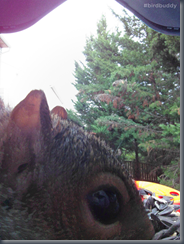Three things I think about often are how to utilize automation better. Not from tearing into the process and redoing it so it is more automatic, but rather the overall impact of automation and the impact of not using automation. In particular, I prefer to wander the path of considering the human. Yes, borrowing from Reddit, but considering the human is critical. While I understand the fear many have about Robotics and Machine Intelligence replacing humans, it is important to consider two critical questions before we conclude on the good or bad reality of automation.
- Does the job/role/function cause the human to decay over time (or the medical term repetitive stress injuries)? If a human does the job for three or five years, will they have injuries from doing that job that they wouldn’t have otherwise?
- Does the job as it exists present safety risks for the humans doing it?
 Two easy questions have to be asked before we condemn automation. Historically at times, humans don’t learn from history. China, as a nation, built a wall 2000 years ago (or so). The Great wall of china was designed to reduce invasions from the North. It didn’t work. So, in 2016 the US repeated that mistake by desiring to build a wall to keep people from the South out. We could do things differently and not repeat the mistakes of history. Automation is a toolset we can use now that benefits humans. It is historically, however, not something new. There have been inventions that reduced human requirements many times in the past.
Two easy questions have to be asked before we condemn automation. Historically at times, humans don’t learn from history. China, as a nation, built a wall 2000 years ago (or so). The Great wall of china was designed to reduce invasions from the North. It didn’t work. So, in 2016 the US repeated that mistake by desiring to build a wall to keep people from the South out. We could do things differently and not repeat the mistakes of history. Automation is a toolset we can use now that benefits humans. It is historically, however, not something new. There have been inventions that reduced human requirements many times in the past.
- Thcottonin Gin
- The plow
- The harness (to allow oxen to pull plows)!
- The Airplane
- The automobile
So the next time automation is presented to you, could you consider the first two questions? Think about how much faster and more effective farmers were after the horse, donkey, or oxen pulled the plow was invented. Think about how small the world is when you can hop on a plane and be virtually anywhere in 20 hours. Or pick up your cell phone and call anywhere on the planet in seconds!
.doc